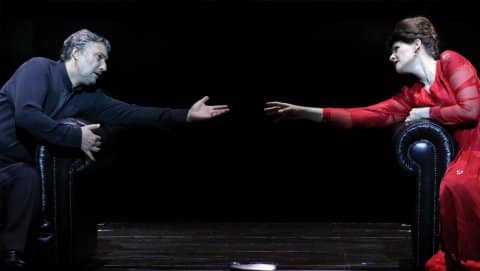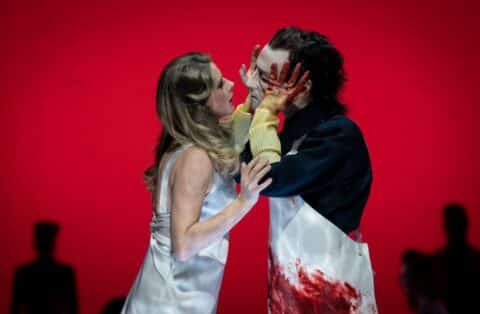TURANDOT • VIENNA STATE OPERA
★★★★★☆
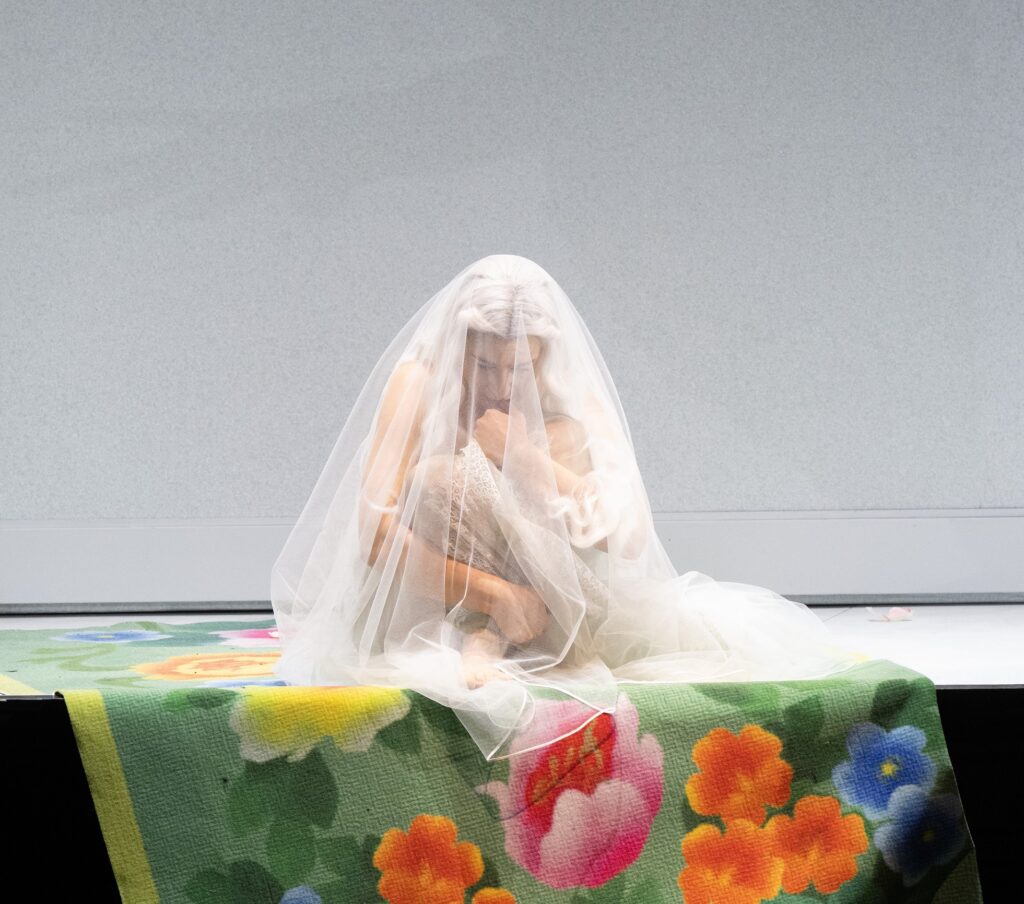
Photo: Michal Pöhn
REVIEW TURANDOT: ASMIK GRIGORIAN STEALS THE SHOW IN VIENNA
A girlish, traumatized Princess Turandot sits motionless in a free-standing brass bed, wrapped in silk sheets while another pig-bound suitor is brought in to guess the three riddles that can avert his execution and secure the princess’ hand.
We’re about halfway through the second act and the princess has yet to sing a single line. But there’s something about her reluctant radiance that has so much X-factor that it can be felt throughout the imposing Vienna State Opera, one of Europe’s most esteemed opera hotspots.
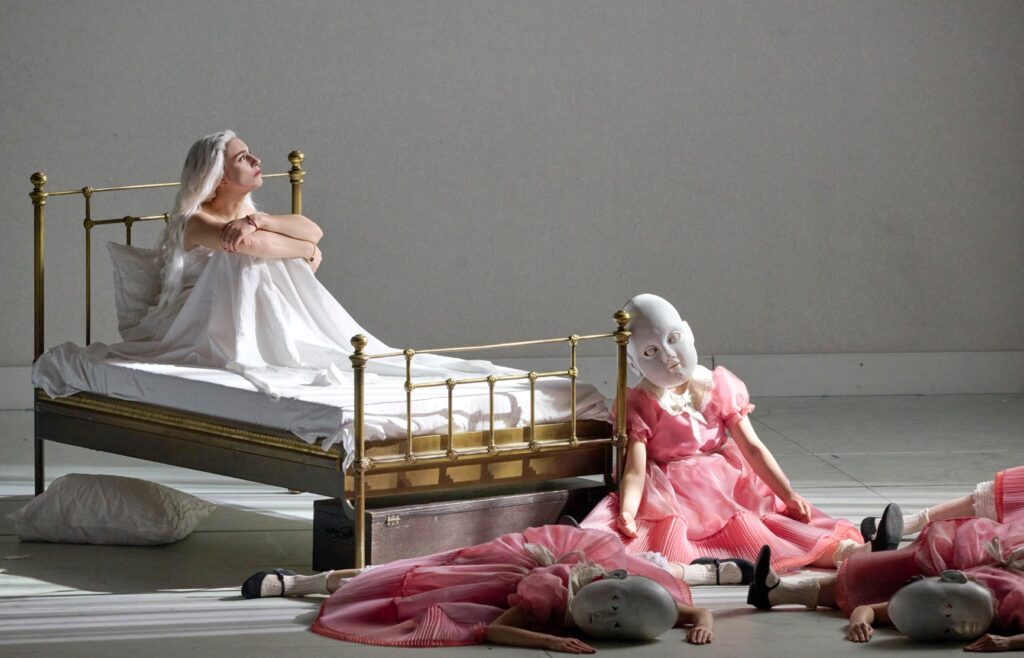
Photo: Michal Pöhn
There it is.
The voice.
Asmik Grigorian is a world star of unrivalled stature. The Lithuanian soprano has an astonishing surplus of vocal power but manages more skilfully than many others to balance her vocal expression between the powerful and the lyrical, so that the result is simultaneously tender and strong, dominant and humble, powerful and angelic.
Experiencing Asmik Grigorian live on stage is overwhelming. On stage, she has a radiance that holds your gaze from start to finish.
The same stage magic is not available to the otherwise excellent Russian tenor Ivan Gyngazov in the role of Calaf, who performs with great confidence and vocal energy, but could have varied his expression a little more poetically.
There was nothing wrong with the jubilant applause after the big hit Nessun Dorma, which is a key musical theme in this final Puccini instalment, but I think there was room for a little more love between the lines.
There is no doubt that Grigorian is the queen of the evening, but you could also enjoy the excellent mezzo Kristina Mktitaryan in the supporting role of the maid Liu, who takes her own life in a torture scene towards the end, where Turandot explains her bad manners by saying that she is not human, but the daughter of hell.
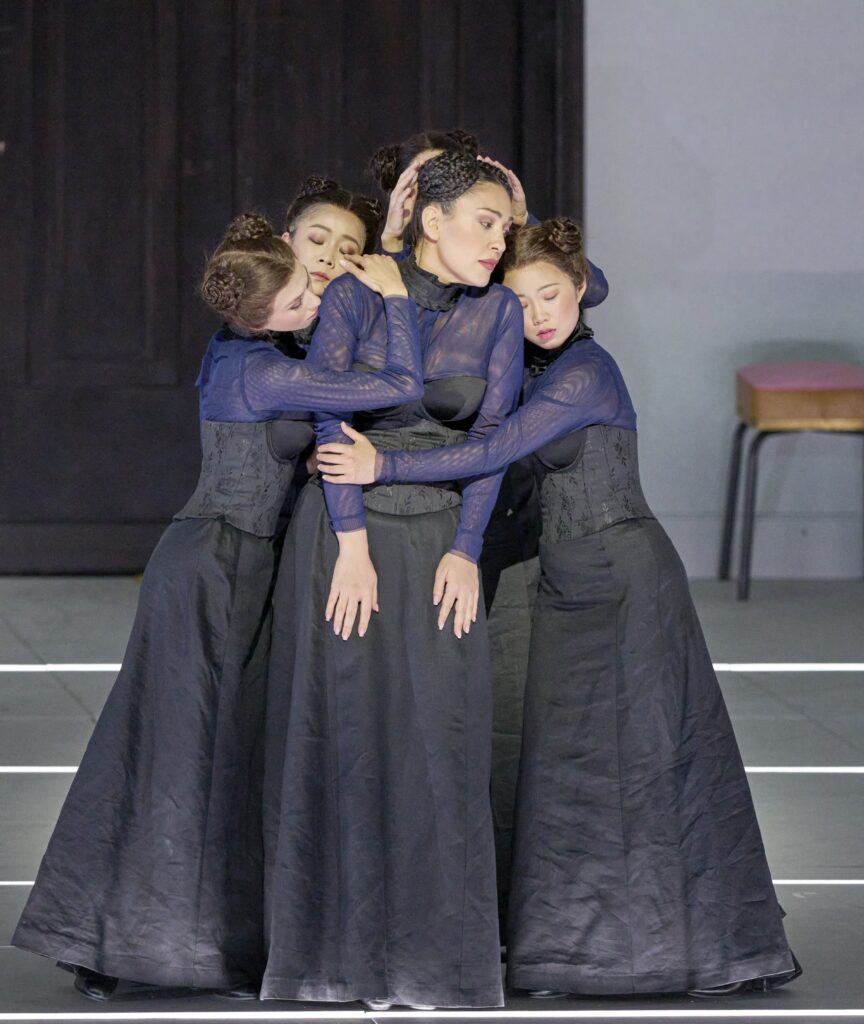
Photo: Michal Pöhn
Calaf converts her with a James Bond kiss of the kind where the woman only reluctantly surrenders after gyrating in vain for the gallery, a tone-deaf staging of the gender dynamic, some might say today.
Maybe we’re actually meant to think twice about it – and feel the abuse.
The thing is, Turandot is deeply traumatized by a dark past and totally against the whole idea of this ‘fairytale’ forced marriage. No one will ever own me. Free me from this riddle nonsense and get the hell out!
German stage director Claus Guth (60), who I have become a fan of after strong opera experiences in Frankfurt (Jenufa) and Madrid (Orlando), has created another original staging that surprises Vienna by delivering a Chinese fairy tale completely stripped of Chinese folklore.
Instead, we get an unassailably simple, uniform stage design in shades of mint green with some scary-ass video projections where a ghostly, semi-transparent Turandot periodically smears blood on the back wall.
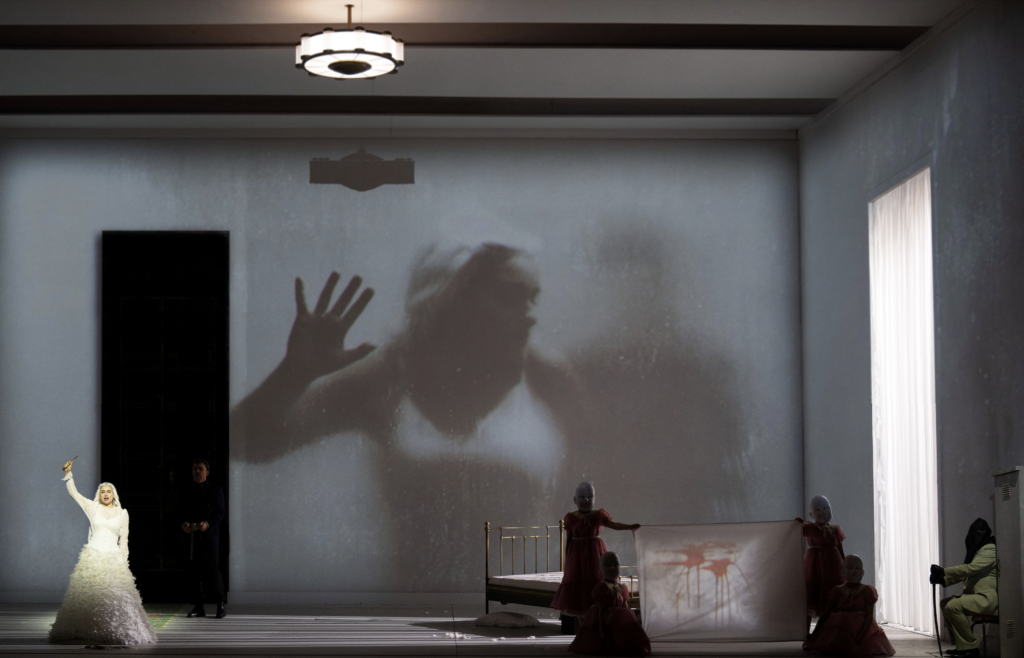
Photo: Monika Rittershaus
On more and more stages in Europe, the presentation of ethnic folklore is automatically being equated with active imperialism, gross stigmatization or other contempt and is therefore frowned upon in elite discourse. It makes you tired.
Fortunately, the music doesn’t care, and that will probably be a problem one day. Puccini skillfully turns his fabulous score around Chinese-inspired motifs with a roar of choir and dramatic orchestration, which I had almost forgotten is one of Turandot’s hallmarks.
My heart was in my throat throughout the first act, which opens with 40-50 shoebox-sized archive boxes spread across the front stage, which just as many suit-clad bureaucrats stroll in and sit down on.
Little do we know that each shoebox contains the severed head of another suitor who has tried his luck with Turandot – and failed.
A spectacular jumble of mechanically staged bureaucracy that seems busy doing little more than decapitating and disposing of the bodies of Turandot’s suitors.
A corny, comical orchestration of busyness that recalls both Kafka and Terry Gilliam’s bizarre 1985 satire-dystopia Brazil.
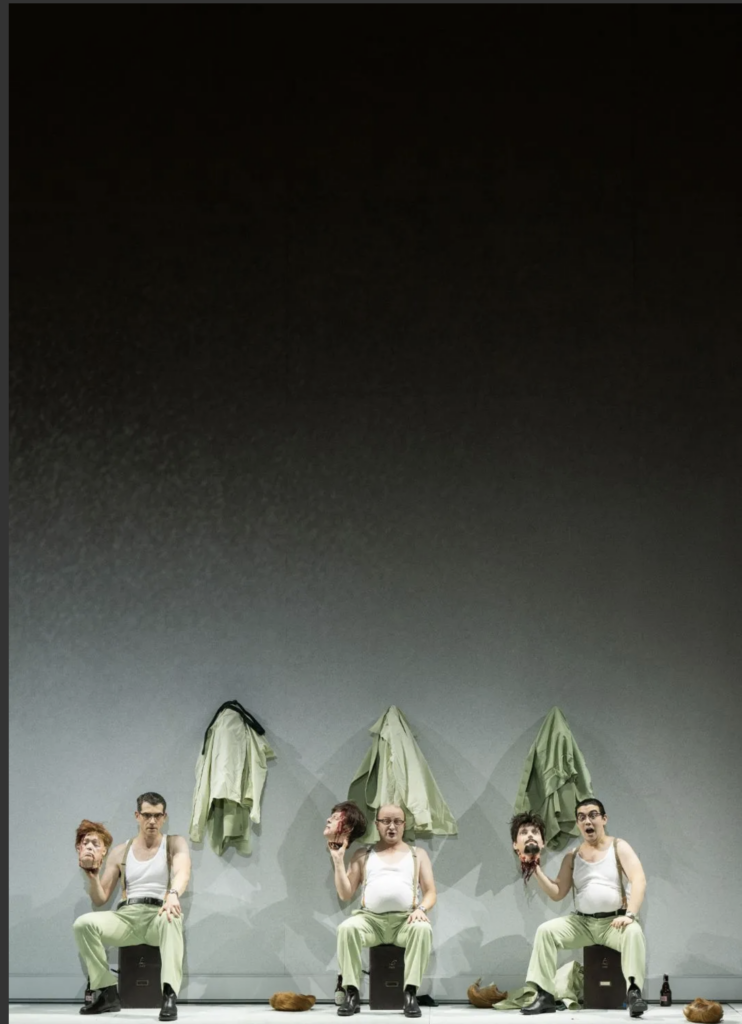
Photo: Monika Rittershaus
As you may already know, in Turandot Puccini abandons his verismo style and opens the door to comedy in this dramatic-romantic adventure that ends up completing the story that love can conquer all – even Turandot’s icy and traumatized heart.
Once again, I realize that when you travel to Europe and visit the opera’s internationally recognized strongholds, you also get something for your money.
This applies to soloists, top directors’ interpretation and staging, choral and orchestral playing, lighting design and stage technology in an overall execution that manifests how brilliant an art form opera is and how much is required to deliver at the highest level.
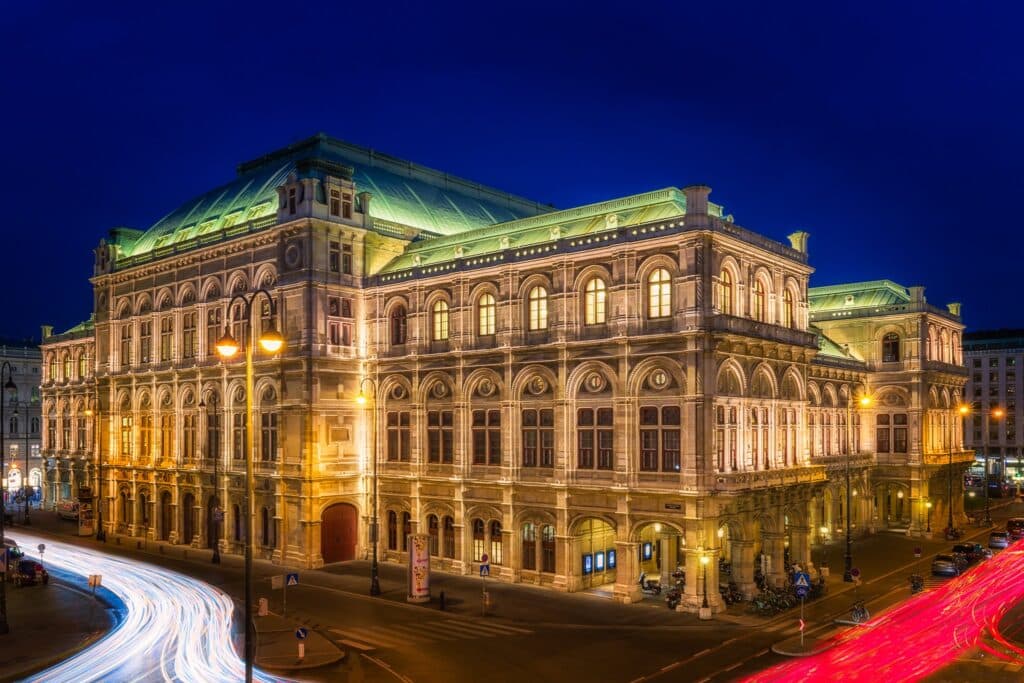
With 1,709 seats (and 435 standing), Stastsoper Wien is the largest of the city’s three opera houses. Next season offers 44 staged productions, six of them new, and most of them spread throughout the season. It’s a well-oiled opera machine with the capacity to stage three to four different productions each week. Short rehearsal times are a built-in problem that you live with as a basic condition.
I look forward to experiencing Asmik Grigorian again in Salzburg in August in (Prokofiev’s Der Spieler) and back here in Vienna this autumn in Verdi’s Don Carlo.
For now, five stars for a magnificent Turandot from GOT TO SEE THIS.


